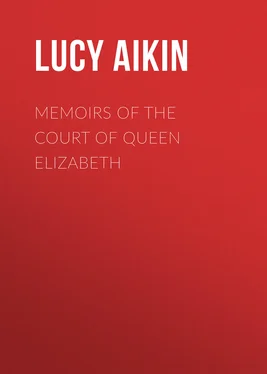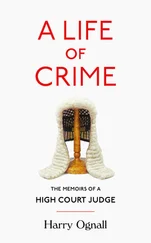Lucy Aikin - Memoirs of the Court of Queen Elizabeth
Здесь есть возможность читать онлайн «Lucy Aikin - Memoirs of the Court of Queen Elizabeth» — ознакомительный отрывок электронной книги совершенно бесплатно, а после прочтения отрывка купить полную версию. В некоторых случаях можно слушать аудио, скачать через торрент в формате fb2 и присутствует краткое содержание. Жанр: foreign_prose, История, foreign_edu, foreign_antique, на английском языке. Описание произведения, (предисловие) а так же отзывы посетителей доступны на портале библиотеки ЛибКат.
- Название:Memoirs of the Court of Queen Elizabeth
- Автор:
- Жанр:
- Год:неизвестен
- ISBN:нет данных
- Рейтинг книги:4 / 5. Голосов: 1
-
Избранное:Добавить в избранное
- Отзывы:
-
Ваша оценка:
- 80
- 1
- 2
- 3
- 4
- 5
Memoirs of the Court of Queen Elizabeth: краткое содержание, описание и аннотация
Предлагаем к чтению аннотацию, описание, краткое содержание или предисловие (зависит от того, что написал сам автор книги «Memoirs of the Court of Queen Elizabeth»). Если вы не нашли необходимую информацию о книге — напишите в комментариях, мы постараемся отыскать её.
Memoirs of the Court of Queen Elizabeth — читать онлайн ознакомительный отрывок
Ниже представлен текст книги, разбитый по страницам. Система сохранения места последней прочитанной страницы, позволяет с удобством читать онлайн бесплатно книгу «Memoirs of the Court of Queen Elizabeth», без необходимости каждый раз заново искать на чём Вы остановились. Поставьте закладку, и сможете в любой момент перейти на страницу, на которой закончили чтение.
Интервал:
Закладка:
In the splendid procession which attended her majesty from the Tower to Whitehall previously to her coronation on October 1st 1553, the royal chariot, sumptuously covered with cloth of tissue and drawn by six horses with trappings of the same material, was immediately followed by another, likewise drawn by six horses and covered with cloth of silver, in which sat the princess Elizabeth and the lady Anne of Cleves, who took place in this ceremony as the adopted sister of Henry VIII.
But notwithstanding these fair appearances, the rancorous feelings of Mary's heart with respect to her sister were only repressed or disguised, not eradicated; and it was not long before a new subject of jealousy caused them to revive in all their pristine energy.
Amongst the state prisoners committed to the Tower by Henry VIII., whose liberation his executors had resisted during the whole reign of Edward, but whom it was Mary's first act of royalty to release and reinstate in their offices or honors, was Edward Courtney, son of the unfortunate marquis of Exeter. From the age of fourteen to that of six-and-twenty, this victim of tyranny had been doomed to expiate in a captivity which threatened to be perpetual, the involuntary offence of inheriting through an attainted father the blood of the fourth Edward. To the surprise and admiration of the court, he now issued forth a comely and accomplished gentleman; deeply versed in the literature of the age; skilled in music, and still more so in the art of painting, which had formed the chief solace of his long seclusion; and graced with that polished elegance of manners, the result, in most who possess it, of early intercourse with the world and an assiduous imitation of the best examples, but to a few of her favorites the free gift of nature herself. To all his prepossessing qualities was superadded that deep romantic kind of interest with which sufferings, long, unmerited, and extraordinary, never fail to invest a youthful sufferer.
What wonder that Courtney speedily became the favorite of the nation!—what wonder that even the severe bosom of Mary herself was touched with tenderness! With the eager zeal of the sentiment just awakened in her heart, she hastened to restore to her too amiable kinsman the title of earl of Devonshire, long hereditary in the illustrious house of Courtney, to which she added the whole of those patrimonial estates which the forfeiture of his father had vested in the crown. She went further; she lent a propitious ear to the whispered suggestion of her people, still secretly partial to the house of York, that an English prince of the blood was most worthy to share the throne of an English queen. It is even affirmed that hints were designedly thrown out to the young man himself of the impression which he had made upon her heart. But Courtney generously disdained, as it appears, to barter his affections for a crown. The youth, the talents, the graces of Elizabeth had inspired him with a preference which he was either unwilling or unable to conceal; Mary was left to vent her disappointment in resentment against the ill-fated object of her preference, and in every demonstration of a malignant jealousy towards her innocent and unprotected rival.
By the first act of a parliament summoned immediately after the coronation, Mary's birth had been pronounced legitimate, the marriage of her father and mother valid, and their divorce null and void. A stigma was thus unavoidably cast on the offspring of Henry's second marriage; and no sooner had Elizabeth incurred the displeasure of her sister, than she was made to feel how far the consequences of this new declaration of the legislature might be made to extend. Notwithstanding the unrevoked succession act which rendered her next heir to the crown, she was forbidden to take place of the countess of Lenox, or the duchess of Suffolk, in the presence-chamber, and her friends were discountenanced or affronted obviously on her account. Her merit, her accomplishments, her insinuating manners, which attracted to her the admiration and attendance of the young nobility, and the favor of the nation, were so many crimes in the eyes of a sovereign who already began to feel her own unpopularity; and Elizabeth, who was not of a spirit to endure public and unmerited slights with tameness, found it at once the most dignified and the safest course, to seek, before the end of the year, the peaceful retirement of her house of Ashridge in Buckinghamshire. It was however made a condition of the leave of absence from court which she was obliged to solicit, that she should take with her sir Thomas Pope and sir John Gage, who were placed about her as inspectors and superintendants of her conduct, under the name of officers of her household.
The marriage of Mary to Philip of Spain was now openly talked of. It was generally and justly unpopular: the protestant party, whom the measures of the queen had already filled with apprehensions, saw, in her desire of connecting herself yet more closely with the most bigoted royal family of Europe, a confirmation of their worst forebodings; and the tyranny of the Tudors had not yet so entirely crushed the spirit of Englishmen as to render them tamely acquiescent in the prospect of their country's becoming a province to Spain, subject to the sway of that detested people whose rapacity, and violence, and unexampled cruelty, had filled both hemispheres with groans and execrations.
The house of commons petitioned the queen against marrying a foreign prince: she replied by dissolving them in anger; and all hope of putting a stop to the connexion by legal means being thus precluded, measures of a more dangerous character began to be resorted to.
Sir Thomas Wyat of Allingham Castle in Kent, son of the poet, wit, and courtier of that name, had hitherto been distinguished by a zealous loyalty; and he is said to have been also a catholic. Though allied in blood to the Dudleys, not only had he refused to Northumberland his concurrence in the nomination of Jane Grey, but, without waiting a moment to see which party would prevail, he had proclaimed queen Mary in the market-place at Maidstone, for which instance of attachment he had received her thanks 20 20 See Carte's History of England.
. But Wyat had been employed during several years of his life in embassies to Spain; and the intimate acquaintance which he had thus acquired of the principles and practices of its court, filled him with such horror of their introduction into his native country, that, preferring patriotism to loyalty where their claims appeared incompatible, he incited his neighbours and friends to insurrection.
In the same cause sir Peter Carew, and sir Gawen his uncle, endeavoured to raise the West, but with small success; and the attempts made by the duke of Suffolk, lately pardoned and liberated, to arm his tenantry and retainers in Warwickshire and Leicestershire, proved still more futile. Notwithstanding however this want of co-operation, Wyat's rebellion wore for some time a very formidable appearance. The London trained-bands sent out to oppose him, went over to him in a body under Bret, their captain; the guards, almost the only regular troops in the kingdom, were chiefly protestants, and therefore little trusted by the queen; and it was known that the inhabitants of the metropolis, for which he was in full march, were in their hearts inclined to his cause.
It was pretty well ascertained that the earl of Devonshire had received an invitation to join the western insurgents; and though he appeared to have rejected the proposal, he was arbitrarily remanded to his ancient abode in the Tower.
Elizabeth was naturally regarded under all these circumstances of alarm with extreme jealousy and suspicion. It was well known that her present compliance with the religion of the court was merely prudential; that she was the only hope of the protestant party, a party equally formidable by zeal and by numbers, and which it was resolved to crush; it was more than suspected, that though Wyat himself still professed an inviolable fidelity to the person of the reigning sovereign, and strenuously declared the Spanish match to be the sole grievance against which he had taken arms, many of his partisans had been led by their religious zeal to entertain the further view of dethroning the queen, in favor of her sister, whom they desired to marry to the earl of Devonshire. It was not proved that the princess herself had given any encouragement to these designs; but sir James Croft, an adherent of Wyat's, had lately visited Ashridge, and held conferences with some of her attendants; and it had since been rumored that she was projecting a removal to her manor of Donnington castle in Berkshire, on the south side of the Thames, where nothing but a day's march through an open country would be interposed between her residence and the station of the Kentish rebels.
Читать дальшеИнтервал:
Закладка:
Похожие книги на «Memoirs of the Court of Queen Elizabeth»
Представляем Вашему вниманию похожие книги на «Memoirs of the Court of Queen Elizabeth» списком для выбора. Мы отобрали схожую по названию и смыслу литературу в надежде предоставить читателям больше вариантов отыскать новые, интересные, ещё непрочитанные произведения.
Обсуждение, отзывы о книге «Memoirs of the Court of Queen Elizabeth» и просто собственные мнения читателей. Оставьте ваши комментарии, напишите, что Вы думаете о произведении, его смысле или главных героях. Укажите что конкретно понравилось, а что нет, и почему Вы так считаете.












